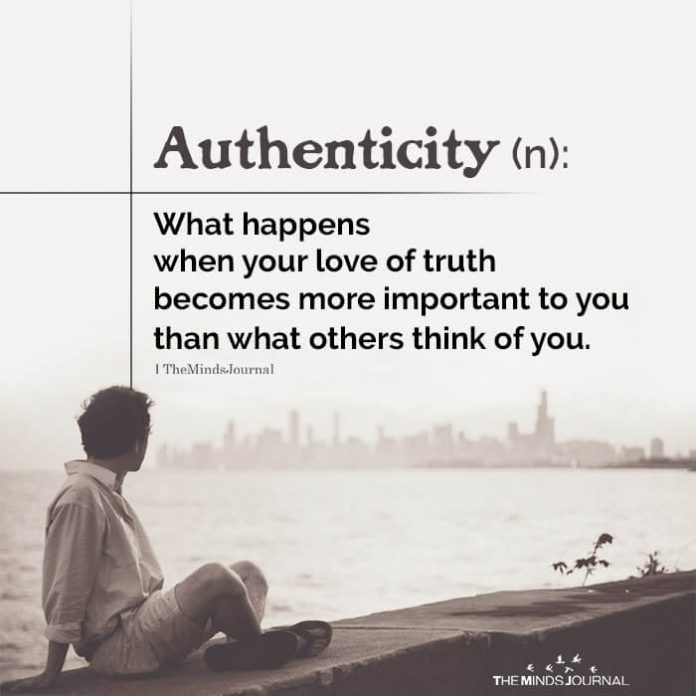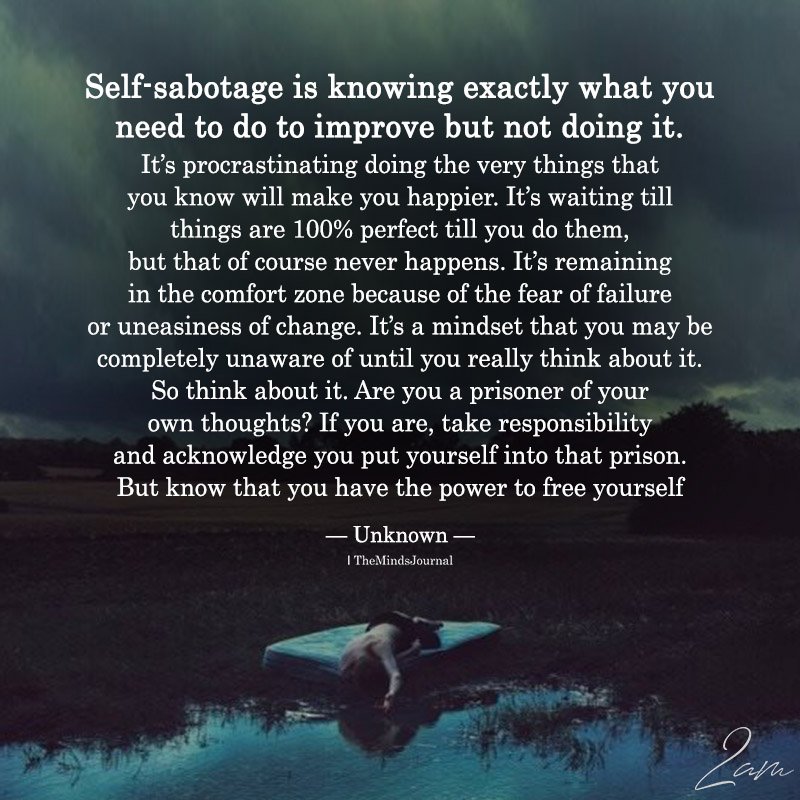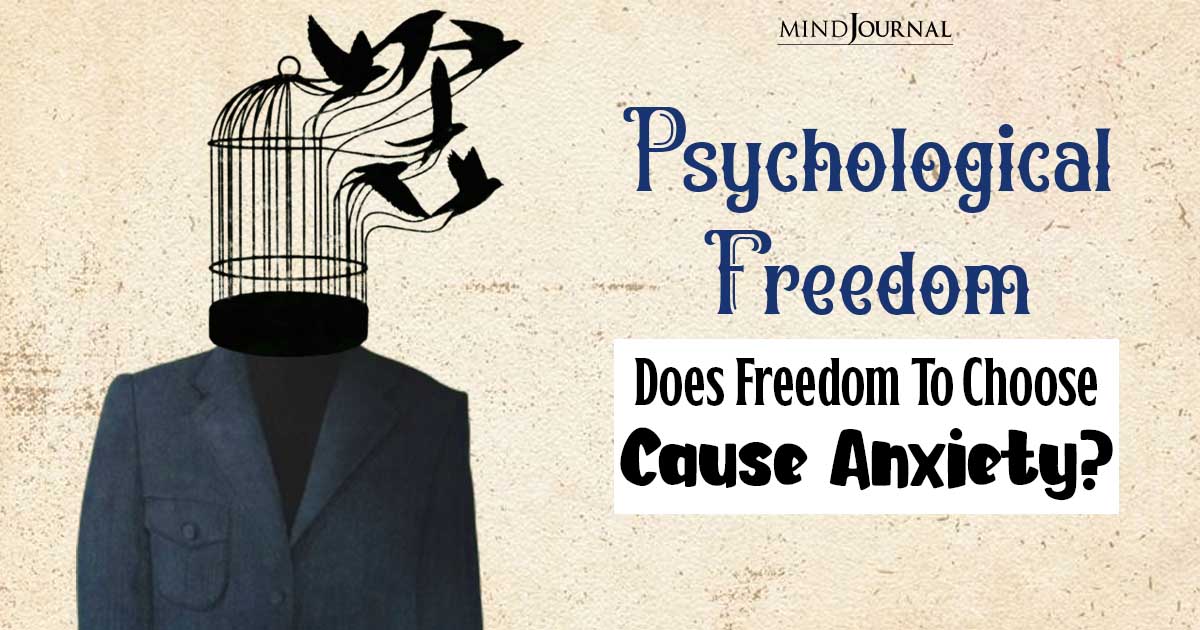Having psychological freedom is a very very, important aspect of life. But what is psychological freedom and why is it so important? This article is going to talk about what psychological freedom entails.
KEY POINTS
- The freedom to choose brings meaning to our lives and boosts well-being, but it can also generate anxiety.
- Sometimes people respond in self-sabotaging ways: trying to control others, blindly accepting suffering, or automatically conforming.
- True freedom requires great courage, a kind of leap of faith.
Freedom, as described by the German social psychologist and humanist philosopher Erich Fromm (1941), is the final goal in the process of individuation. Fromm’s concept of freedom is close to David Shapiro’s (1981) concept of autonomy—becoming an independent agent in the world.
It encompasses a capacity to manifest what makes you uniquely yourself without recourse to either self-absorption or self-abnegation. Murray Bowen’s concept of “differentiation of self” also entails this idea and ideal of individuation.
Related: Radical Acceptance: 7 Steps to Overcoming Resistance and Finding Emotional Freedom
What Is Psychological Freedom?
When an individual lacks autonomous psychological agency, they are likely to feel insecure and insignificant and have doubts about the meaning of life. Autonomy in Kant’s (1997) Enlightenment moral philosophy requires acting in accord with moral duty over and above desire or merely heeding others’ demands, and it involves deciding and acting in alignment with that duty.
The Romantic philosopher John Stuart Mill (1956) reacted against Enlightenment philosophers, arguing for the individuality of desire as fundamental to autonomy and character:
“A person whose desires and impulses are his own–are the expression of his own nature, as it has been developed and modified by his own culture–is said to have a character. One whose desires and impulses are not his own has no character.”
When one lacks such freedom, whether to decide and act out of moral duty or to feel authentically one’s own unique desires, there is a tendency for self-functioning to be compulsive or reactive rather than self-directed.

The anxiety of freedom
The 19th-century philosopher Soren Kierkegaard described psychological freedom as dizzying anxiety; more precisely, he called anxiety “the dizziness of freedom.”
In The Concept of Anxiety (1844), Kierkegaard reflected: “Anxiety may be compared with dizziness. He whose eye happens to look down the yawning abyss becomes dizzy. But what is the reason for this? It is just as much in his own eye as in the abyss, for suppose he had not looked down.”
He analogized peering over a cliff, the terror that you could fall over and plummet to your death combined with the simultaneous trepidation in knowing that you could throw yourself—fear and dread, respectively. The worst that could happen is terrifying, yet the freedom to choose can be paralyzing in its own way.
Freedom to choose generates anxiety. Any choice may be rattled by dread. Giving way to unchecked desire or merely acquiescing to imposed expectation steers away from the tensions authenticity requires and, thus, is a path to despair.
Kierkegaard (1844) contemplated: “Freedom succumbs to dizziness. Further than this, psychology cannot and will not go. In that very moment, everything is changed, and freedom, when it again rises, sees that it is guilty.
Between these two moments lies the leap, which no science has explained and which no science can explain. He who becomes guilty in anxiety becomes as ambiguously guilty as it is possible to become…”
Not everyone is willing to endure the possibilities of freedom. Some find themselves on a path involving self-sabotage, perhaps uncertain how to manage dialectical anxieties of a free existence.
When this happens, as Fromm described, a person is attempting to “escape from freedom.”
Fromm proposed three psychic mechanisms that he believed one might utilize for escaping negative aspects of freedom and regaining lost security: authoritarianism, destructiveness, and automaton conformity. These escape mechanisms bring security at a great cost:
1. Sadism — The authoritarian character
Sadists dominate others as a way of attempting to gain in a surrogate what they lack within themselves and in life: control. And sadists’ abuse also arises from an addiction to the psychophysiological experience of relational power.
Erich Fromm described sadistic behavior as an experience of power that transforms “impotence into the experience of omnipotence (1973).”
Fromm (1941) associated such behavior with what he called the “authoritarian character”—embodied by “an individual who… tyrannizes those beneath him and is submissive to… the powerful ones above.”
Related: What Is Energy Psychology? Unleashing The Power Within For Mental And Emotional Well-being
2. Masochism — The self-destructive character
Masochism, on the other hand, is embodied by a “willingness to accept suffering in order to make a point, to uphold a principle, or to maintain self-respect” (Shapiro, 1981). The masochistic impulse occurs when a person grasps for control through harmful forms of self-soothing.
Eating disorders, cutting, and substance abuse are indicative of a masochistic coping style and often of entrenched emotional dominance or avoidance within a family system.
Both sadism and masochism are kinds of rigid characters. Each involves a coercive assertion of will driven by egotism and shame.

3. Automaton conformity
Hypnotic, self-fulfilling pre-convictions and perseverating interpersonal habits are among the most difficult challenges we face in embodying autonomy.
They originate in the murky psychological underbelly or, as Carl Jung called it, the shadow, containing disowned memories and inclinations that maintain their power by our sublimation of them.
Shadowed self fragments excite vigilant guarding, and protection often becomes projection.
We live with the constant risk of projecting emotionally loaded, experience-laden anxieties, images, and symbols onto the people and the world around us. To the extent that we act at their whim, we find ourselves automatons performing program-like responses.
The wise World War II Jewish concentration camp survivor, logotherapist Viktor Frankl (1959), challenged, “Between stimulus and response there is a space. In that space is our power to choose our response. In our response lies our growth and our freedom.”
Courage
Life is anxiety. It is freedom yet it is responsibility, a series of choices under constraint, one negating another. The question is not how to be free from wobbling feet on the dance floor. This operates from a false notion of courage—that is, freedom from fear rather than acting in spite of it.
Ultimately, Kierkegaard (1844, 1845) advocated a leap, a suprarational recognition that forward movement in life is primarily a function of will and trust.
Related: What Is Emotional Intelligence And Why Is It An Important Skill?
He described a leap in spite of and even propelled by unresolved tension and rising anxiety—taking a risk that, once taken, leads to an unexpected path, healing that reaches beyond ourselves, and greater wholeness, as well as a kind of freedom.
Want to know more about what is psychological freedom? Check this video out below!
References:
Frankl, V. (1959). Man’s search for meaning. Boston, MA: Beacon Press. Fromm, E. (1941). Escape from freedom. New York, NY: Farrar & Rinehart. Fromm, E. (1973). The anatomy of human destructiveness. New York, NY: Holt, Rinehart and Winston. Kierkegaard, S. (1844). The concept of anxiety: A simple psychologically orienting deliberation on the dogmatic issue of hereditary sin. Translation by Reidar Thomte, 1980. Princeton, NJ: Princeton University Press. Kierkegaard, S. (1845). Stages on life's way. Translation by Howard V. Hong, 1988. Princeton, NJ: Princeton University Press. Shapiro, D. A. (1981). Autonomy and rigid character. New York: Basic Books. Kant, I. (1997). Practical philosophy: The Cambridge edition of the works of Immanuel Kant (M. Gregor, Trans. & Ed.). Cambridge, England, UK: Cambridge University Press.
Copyright @ Blake Griffin Edwards
Written By Blake Griffin Edwards
This article was also published at Psychology Today










Leave a Reply